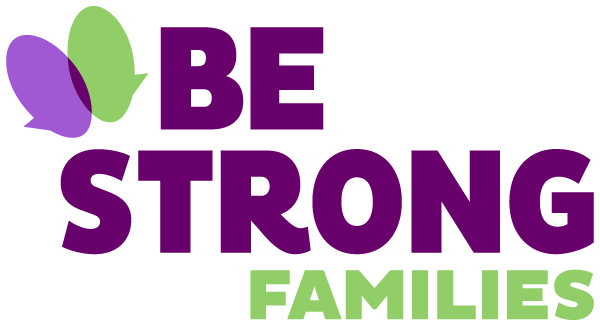Revolutionizing ACEs Prevention: Unveiling the Science Behind Parent Cafés
In a collaboration spanning the better part of three years, Be Strong Families has proudly partnered with the Early Childhood Innovation Network (ECIN) in Washington, D.C. as they explore the outcomes and positive impact of Parent Café participation on parents, caregivers, and their families. This groundbreaking research effort, with the support of BSF, has recently culminated in a significant milestone — the publication of a practice note titled "Professional Hats Aside: How Parent Cafés Reduce Perceived Power Differentials to Engage Caregivers in Adverse Childhood Experience Prevention Using the Protective Factors Framework" in the journal Families in Society: The Journal of Contemporary Social Services.
The brains behind this pioneering study include a diverse group of researchers from Children's National, MedStar Georgetown University Hospital, George Washington University Hospital, and the collaborative efforts of Be Strong Families. Once ECIN became a BSF Certified Training Partner for Parent Cafés, they began amassing their own Parent Café data. That, together with our own Café data we collect as a part of our National Parent Café Evaluation project, has contributed to this growing body of research. Together, we have dedicated our time and expertise to delve into the multifaceted world of Parent Cafés, striving to illuminate the path toward effective ACEs prevention and equitable family engagement.
This publication marks a significant step forward for the Parent Café model, transforming it from a community-driven initiative to a scientifically recognized and research-informed practice. The research partnership's recent presentation at the 2023 American Public Health Association (APHA) Annual Meeting and Expo in Atlanta, GA, not only highlighted the success of their work but also showcased the model's potential to revolutionize how we engage with caregivers in the prevention of multigenerational ACEs.
Two of the practice note authors, Dr. Caleb Dafilou (right) and Dr. Nia Bodrick (left) at the 2023 APHA Annual Meeting and Expo.
The impact of this research is significant for a variety of areas, from equitable approaches to family-centered engagement to ACEs prevention practices. As emphasized in the practice note, the Parent Café model takes a person-centered approach, prioritizing the entire family unit. It achieves this by emphasizing deprofessionalization, collaboratively creating program designs, and incorporating diverse supportive strategies. Through the incorporation of safe spaces, active listening, social supports, tangible resources, and self-directed or peer-guided cues to action, the model successfully diminishes power differentials. This approach facilitates a secure and inclusive environment for families who have encountered ACEs, promoting meaningful engagement and support.
Perhaps most importantly, the practice note highlights how the Parent Café model provides a crucial framework for engaging with individuals and communities that have historically faced stigmatization and marginalization. It exemplifies a strength-based, person-centered approach that aims to foster equitable relationships with participants while promoting resilience in individuals and communities.
In conclusion, this collaborative effort stands as a testament to the power of community-driven initiatives and the transformative potential of research-informed practices in reshaping the landscape of ACEs prevention. The journey from collaborative exploration to scientific validation marks a significant leap forward, bringing us one step closer to a future where Parent Cafés are not only community initiatives but integral components of evidence-based, impactful preventive strategies that contribute to an equitable world for all families and communities.

